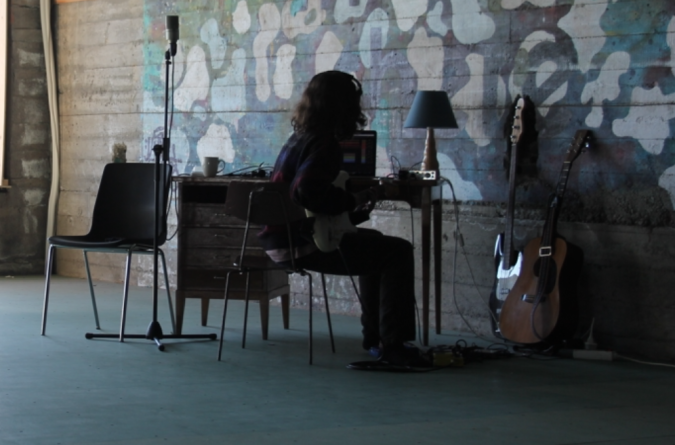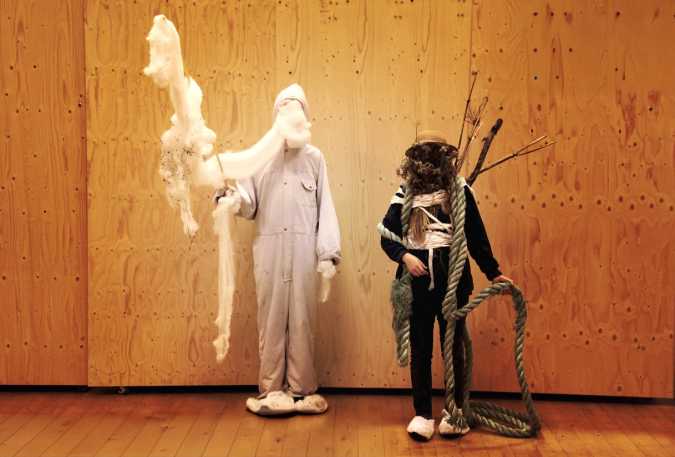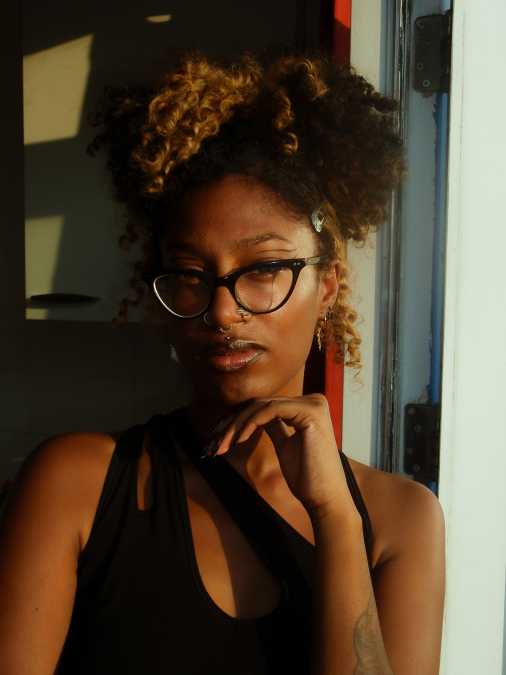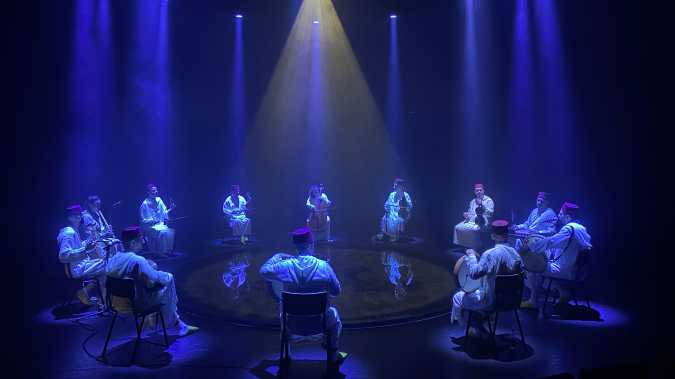In the spring of 2023, COSMOS – Le Guess Who’s? global music community – organized its first artist residency in Goa, India. Over the past few years, Goa has become a sanctuary for artists and freewheeling spirits of all kinds, including REProduce-founder Rana Ghose. In collaboration with Rana, COSMOS created a space for two weeks of performances, excess, rest, and deep conversations.
In this experimental 2-part essay, Goa-based journalist and cultural reformer Srijandeep “the ambassador” Das details the current movement of Indofuturism, whose imprints he found all over Goa. He also recaps the residency alongside Rana, experimental musician Hardi Kurda, and LGW director Bob van Heur.
At Le Guess Who 2023, Rana, Hardi and lauded performance artist Nikhil Chopra are going to premiere their collaborative piece String Pulses on Sunday, November 12th. Rana will also share his thoughts on Indofuturism during a COSMOS panel about Music Futurisms on Friday.
Words by Srijandeep Das
Photography by Naihan Nath
Part 1: The Last of the Suburban Sanctuaries
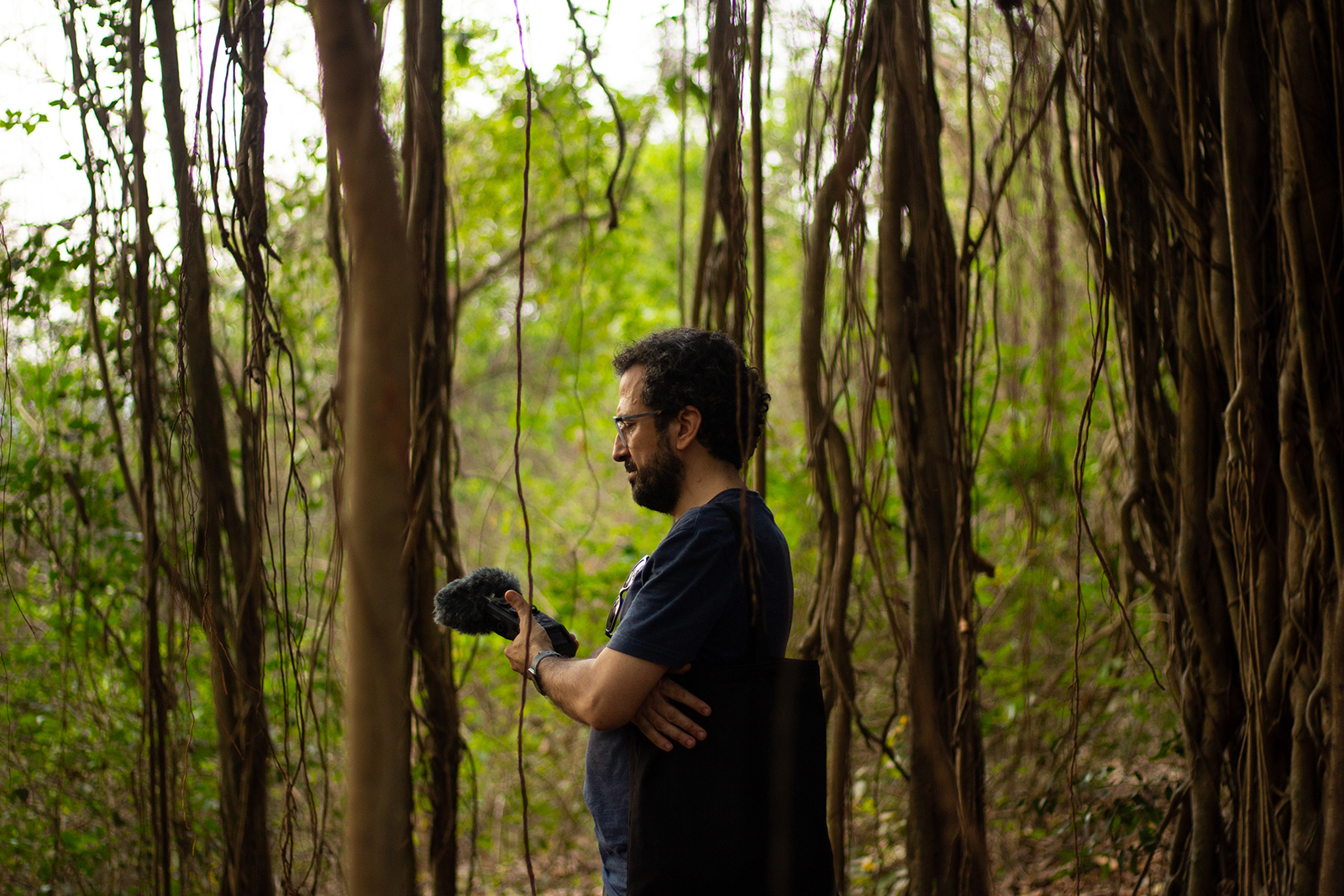
The sound of the whirring pedestal fan half-drowned my answer.
“Do you remember that particular scene with the ancient mosquito preserved in amber? One joined as a handle of the white-bearded geneticist’s walking stick?”
I mmhmed and nodded vigorously at the voice coming through the doorway.
“That’s what Goa is. Look outside,” the voice nearing said.
It was the hour of cowdust, it was dusk — sounds of cowbells and slanting silhouettes of cattle coming back home after a day of grazing, kicking up red dust with their hooves. As per, the cowherder guided the way.
I witnessed the sight from the balçao (an Indo-Portuguese style balcony) of an esteemed host, a guide to many of the most important voices of the South Asian underground.
Pulling up a chair beside me holding a jewel-toned Shanghai pitcher from the 1900s, was the de-facto father, patron and custodian of the Indofuturism movement, ‘Opohroop’. He was an audience member, present during the COSMOS Goa residency showcase.
While the overall country is being torn asunder by communal divides in Manipur — Indofuturism — perhaps the biggest of all the swells of pervading futurism movements — is a response to the hopelessness around us.
No other country has more under-30s in the world. Many of whom are questioning their contribution to the overall story arc of working 9-to-5. Countless have taken to art. An education system that is in servility to the worldwide industrial complex, political propaganda, has seen more and more of the current generation of Indians veering away from present models provided. Many creative Indians are refusing to sell their souls and the souls of their children.
The Indofuturists are reimagining accepted global norms in the fields of music, art, technology, economy, architecture, community empowerment through nature-driven design. In Goa, you’ll find one of the roots.
“Goa is preserved in amber,” he said. “It’s the imprint of a tired God’s walking stick. Within that small imprint on earth lies a sanctuary for art geneticists and their experiments… One of the last strongholds of nature and man living in harmony. So few in the world know about this place,” he mused.
“It is poetic to me why COSMOS chose to do this residency here,” he said, pouring something from the pitcher into two equally vintage tumblers tottering on the edge of the teapoy. Noticing my unease, he pushed the tumblers deeper into the table.
“This jug, for instance, is from the Qing Dynasty,” Opohroop continued. “During Shanghai’s Golden Age of trade, one of its partners was Lisbon and consequently Goa, which was under Portuguese inquisition. So, it’s not hard to imagine that at one point in history, that Uraak (a cult favourite Goanese drink made out of distilled cashew apples) danced inside this jug.”
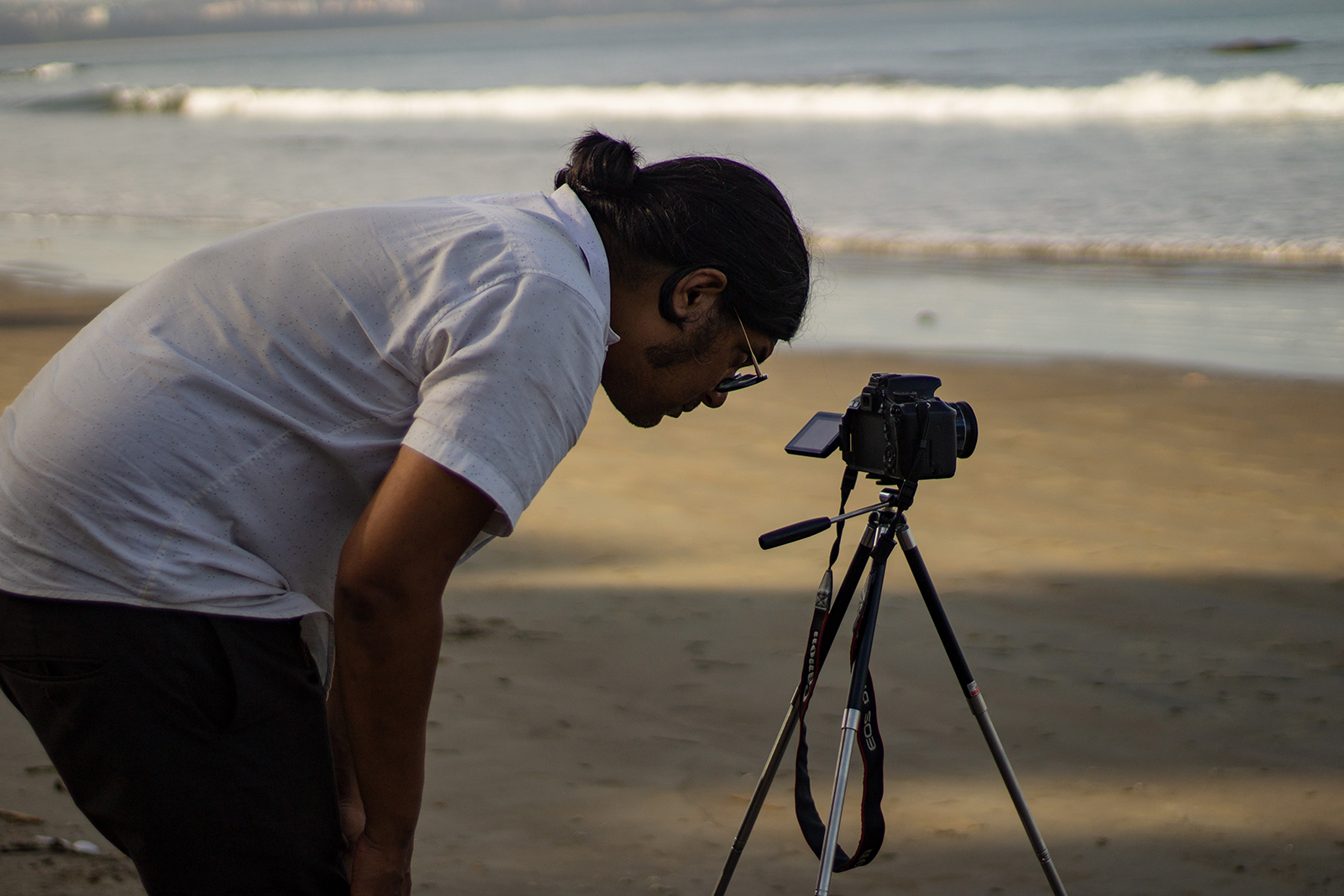
This thought of inter-cultural exchange has been under threat in present day India under a covert and often obvious form of discrimination. A cultural homogeneity enforced by the ruling right-wing Hindu populist government, lights fires and stokes the flames by peddling anti-minority and anti-immigrant propaganda. A policy that threatens the very identity of India, a singular country that speaks 398 languages.
Opohroop, a scholar of oriental design and sound, was speaking to me from behind a gamcha (traditional wipe-scarf) wrapped around half his face.
His pamphlets distributed in 2nd-tier inner cities and rural epicentres of India, have been translated in over 25 languages and counting. Through effective design, the pamphlets debunk myths and prejudices one holds against his fellow man. Manifestos are often designed as comic books.
Opohroop’s manifestos on Indofuturism is causing a seismic ripple in the collective consciousness. The manifestos are refamiliarising the disenfranchised who are prone to hate, to the novel idea of cosmic unity, through clutter-cutting communication design.
In a country this diverse, he believes that one of the only ways one can communicate unity with utmost efficiency is through well-meaning but disruptive design. And he believes COSMOS’ Goa residency showcase was a piquant sonic counterpoint to the emerging movement.
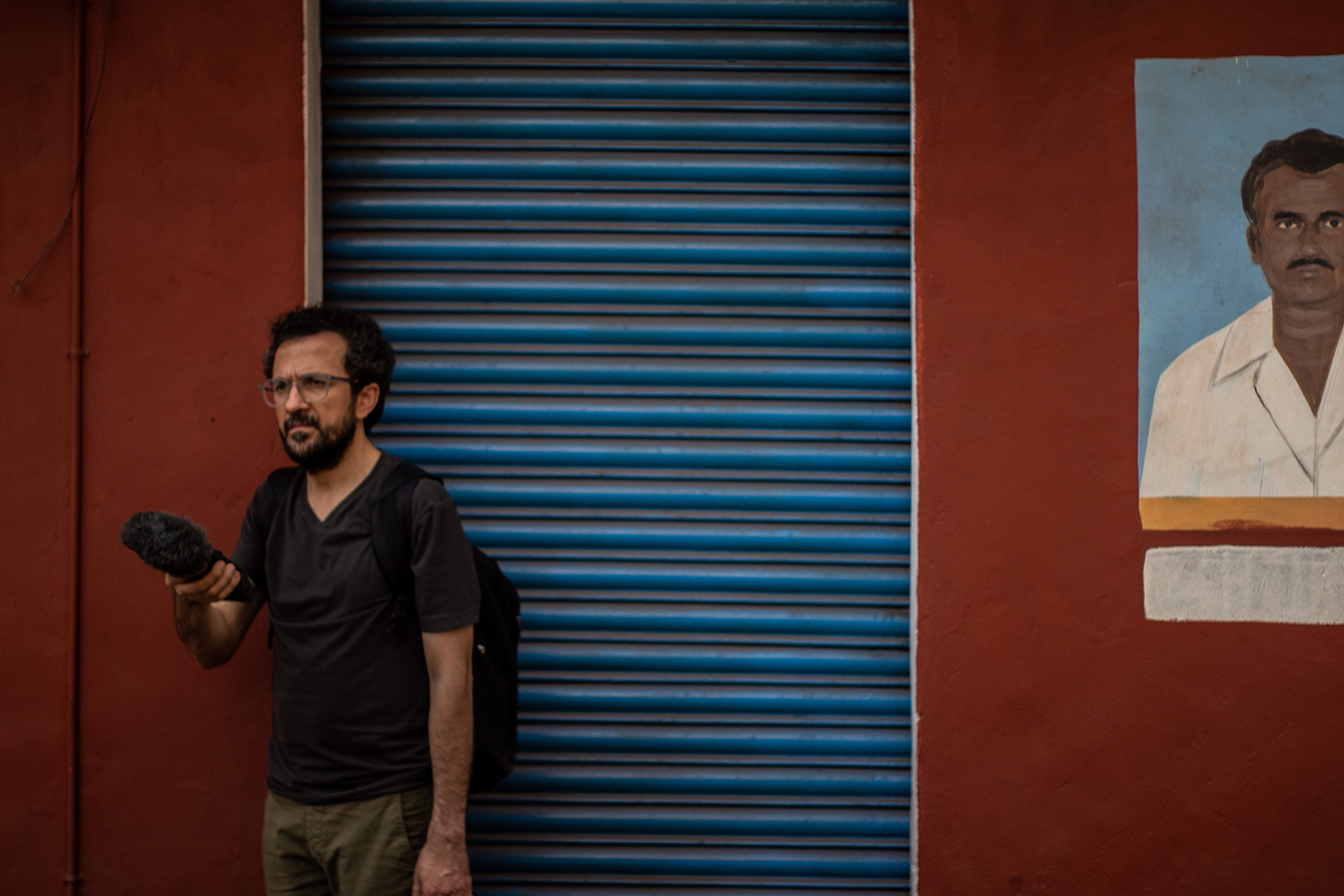
A catalyst to the showcase was Hardi Kurda.
Kurda is from Slemani, Kurdistan. He's the invited artist to the COSMOS residency and showcase in Goa, and a visionary in the realm of noise. His expressions are charting the course correction. A zigzag journey in empathic listening through his irrefutably iconic transistor violin, strung on this occasion, with sitar strings. It is what he does with it that it is for the most part like a sermon on discomfort and release. His performance at the Goa showcase, felt for many, an epiphany. They saw a man possessed by a frequency.
“Hardi’s performance, among others in the showcase, was an acute inter-personal revolution,” Opohroop noted. “You sensed the crowd witnessed musicians breaking thought-chains of [others’] expectations. It remade their musical ear in the space of a few hours… And some must have gone back home and thought about the limits of their own conditioning.”
So, is the genre of noise inextricably political?
“Yes, by its very nature," he responds. "It is contradictory to the status quo of what we expect music to be. It was Marx who said, “the forming of the five senses is a labour of the entire history of the world,” then the reconditioning of our senses must be the fundamental responsibility of any revolution.
Opohroop continued, “Decolonising the ear starts with palate cleansers. Noise, as a genre, when evocative can certainly expunge palates.”
Speaking of which, I asked him his opinion on the Indian Noise scene.
“There has been a nascent noise community in India on the rise, guided by REProduce Artists Listening Room sessions. They are relatively well known among the underground. I believe these artists to be the contrapuntal prologue, a sonic prototype, a primordial soup preceding a revolution.”
To that we raised our glasses.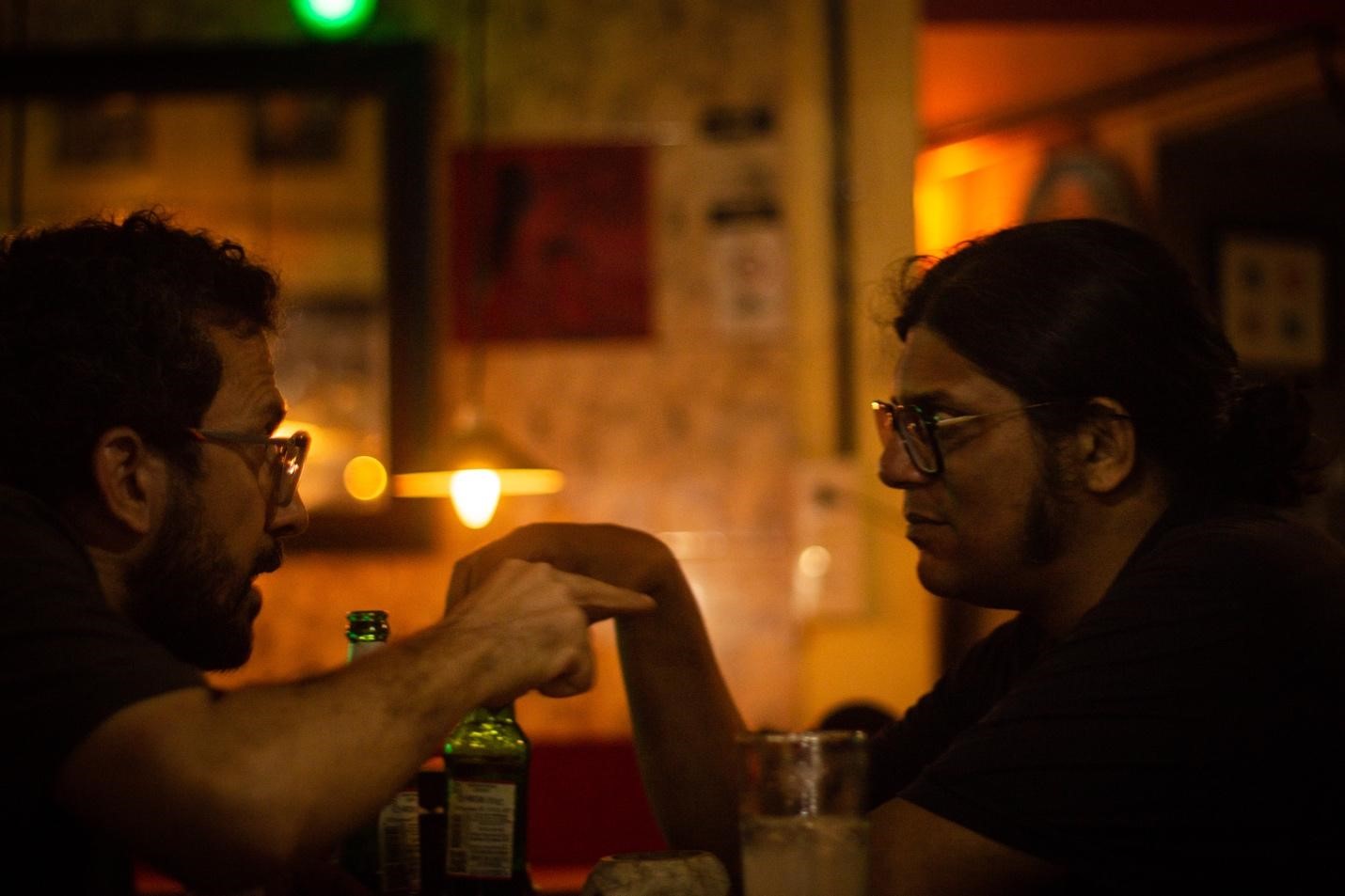
Part 2: Residency Recap with Hardi Kurda, Rana Ghose and Bob van Heur
Roll Call:
Hardi Kurda - International resident and performer, founder of Space21 Festival, Sulaymaniyah, Kurdistan.
Rana Ghose - Host of the residency and founder of REProduce Artists, India.
Bob van Heur - Co-founder of COSMOS and Le Guess Who? Festival.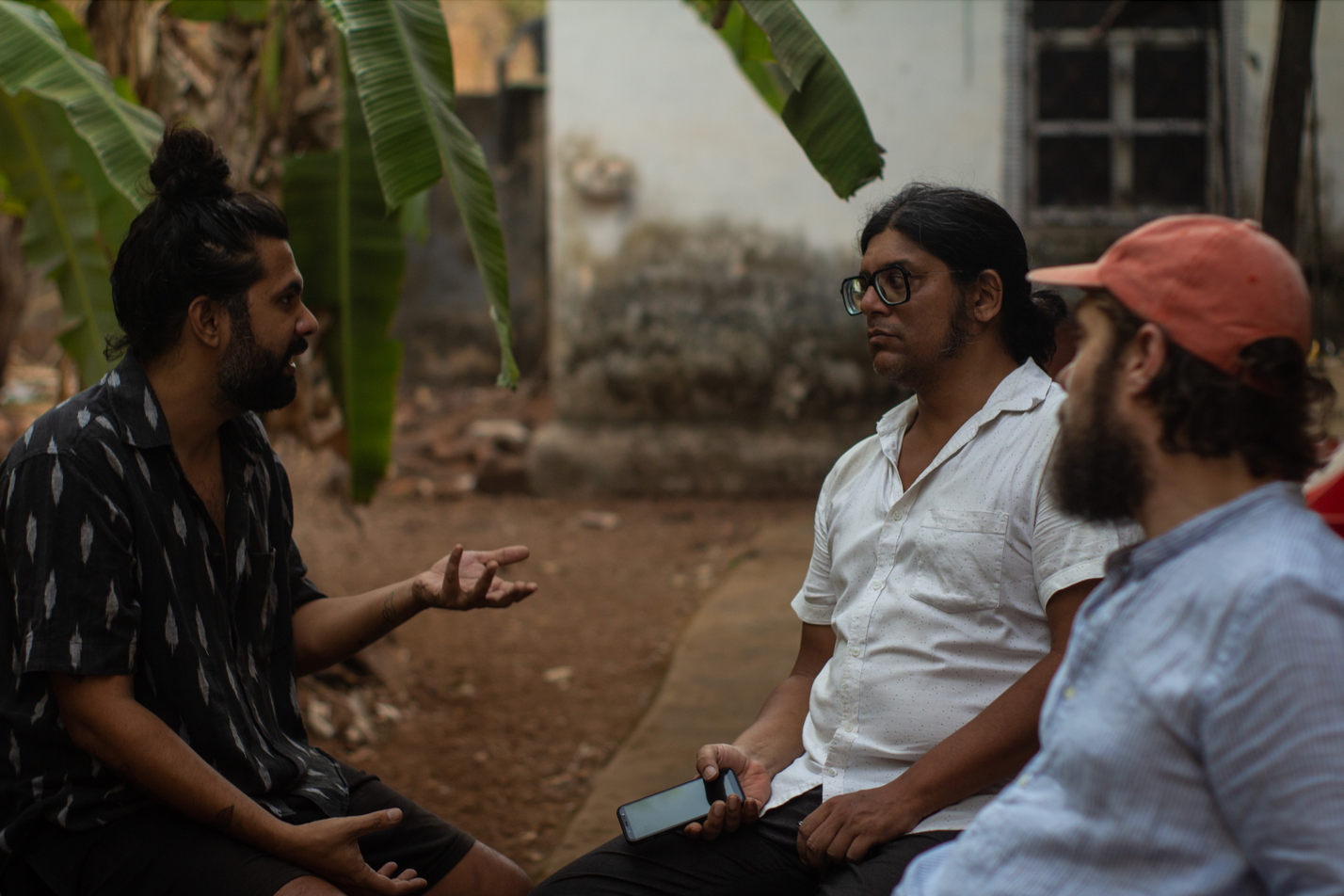
The seeds of the inaugural COSMOS residency found fertile ground in Goa.
A big part of Goa's ever-evolving spirit is attributed to its immigrants, temporary residents and the kindness of passers-by mingling respectfully with locals and their tradition. Some of the most illustrious artistic nomads make Goa their home away from home until the season lasts.
Here, Rana Ghose, Hardi Kurda, and Le Guess Who’s Bob van Heur share their thoughts on the residency.
Q: Hardi, how was Goa for you?
Hardi Kurda: It was amazing! The vibe reminded me of my childhood. It is more intense than Slemani, that’s where I came from. More, more, more connected. You know, people here laugh when they do stuff? There isn’t an external order to tell them what to do. Unfortunately, that is my experience with the West, with too much structure, people become alienated.
Q: I had a similar experience when I came to Goa for the first time during the pandemic. All the artists and musicians who came down here, came with a sense of mortality, walls were down, and people communicated heart-to-heart. Is that what you felt too?
HK: Yes. The audience and I didn't know anything about each other, but just in less than 30 minutes, we found such a deep connection. It's just a different way of communicating, it’s organic, intense — not the kind of communication where our mind is always at a different place.
Q: What was your mindset heading into this residency?
HK: Creating an environment that was uncomfortable for me, where I could find limits by myself.
Q: What was the most memorable feedback you received from the audience?
HK: This is the most I’ve enjoyed myself in a performance. The audience, and especially our photographer Naihan, told me later: ‘Hardi you were an entirely different person on stage!‘ She was with us for 10 days, maybe, taking photos, we had many moments together. So exploring this exact question, of what was this personality she saw?
Q: What part does discomfort play in your performance?
HK: Discomfort makes you a more conscious listener. For example, I don’t have total control of the sound. I use a radio embedded in my violin. That frequency is not in my hand. The two violins, electric violin and acoustic violin with the sitar string, they way the sound was different during the performance. The interactive sensors I have with my mobile phone, I also use a light indicator. So it's calibrated to the light of the day-time when I tested it. I play in the evening. It’s not so much about improvising as it’s about technique.”
Q: Rana, what do you think contributed to Hardi feeling so happy about his performance?
Rana Ghose: It's touching, because he said he felt this innate trust in what I was doing, you know, professionally. He was able to put a lot of things at ease because he just felt confident that if I said it, I'm going to do something, that I would, and that kind of meant the world. So maybe that allowed him to explore the discomfort that he appreciates in a different way. He wasn't burdened by production realities or challenges of unexpected things. And that's how I like to do things. And obviously I strive to make sure everybody knows what to expect as a production designer so as not to fall into that trap of expectations that aren't met because they weren't stated.
Q: What were things that were distinct about this performance?
HK: Rana was like, why don’t you go down to the audience with your electric magnetic microphone? It was a fantastic idea! So I asked them, do you want to listen to your mobile phones? There were exploding sounds coming through the speakers upstairs. It was an unexpected invitation, the performance was shaped in the moment.
Q: Rana, how did that moment come about?
RG: People were just hanging out, and Hardi was upstairs. It was quiet. So I quickly went upstairs and said to Hardi, um, should I ask people to come by? You know, because obviously I felt like it would be a real tragedy if people weren't even aware at the time. But then I realised because when we were sound checking prior, we developed this idea, I mean, he developed, I should say, and I helped facilitate the idea of him using this particular microphone he has with my wireless transmitter and receiver kit, microphone kit, and going on people's phones. So, I said to Hardi, that maybe now is the time to do that. So, yeah, he did. And I think that worked like a pied piper towards bringing people upstairs.
Q: How was the dynamic between you and Rana?
HK: Me and Rana, every moment we trust each other on how we think. I love that sort of communication. I loved how we invited the audience upstairs. Now, when they take their phone back home they’ll know exactly how their phone sounds. This kind of impact I like in each performance.
Q: People will have gone back home with a completely different idea of what their phone sounds like. It could be a sentient object, you know, I mean, not sentient, but it's alive with sound, and they will never look at the phone the same way.
HK: I am happy to see that something I did shows the potential of changing people’s relation to sound. People hear so many fantastic things but not many of those leave a memory, you know? Certain sounds have nostalgia, sure, but don't impact their way of thinking.
Q: Bob, what’s the final verdict; do you consider the Cosmos Goa Residency to be a success?
Bob van Heur: I don't know. Like that's, that's not a question for me to answer. I think that's like for Rana and Hardi to answer first. It was interesting for me to see during the week, Hardi being a bit nervous, a nerdy kind of guy. And then after the performance there, he was a whole different kind of person on stage. Like he showed confidence with interactions during his performance with the audience. It was almost as if he opened up. Everyone loves Hardi, everyone knows Hardi. I think there was something new for him as well. Like just to have that kind of energy around him. He was almost like a rock star at this residency in a way, playing very experimental music.
Q: Hearing you say that, in my mind, it feels like a success, because he opened up, he blossomed, found resonant energies around him. And that, I think, is a good conclusion to all of this?
BvH: Rana saw a potential of like-minded energies combining that hadn't happened yet… And he was also on his way out because he's going to be in the US now. The residency for Rana was almost like an interesting closing of an era of time that he was in India. And now we bring some of the acts from the residency to Utrecht for the festival. I think everything kind of comes together. It doesn't feel like an ending point. It feels more like a starting point for things to come. It feels like we are warming up.
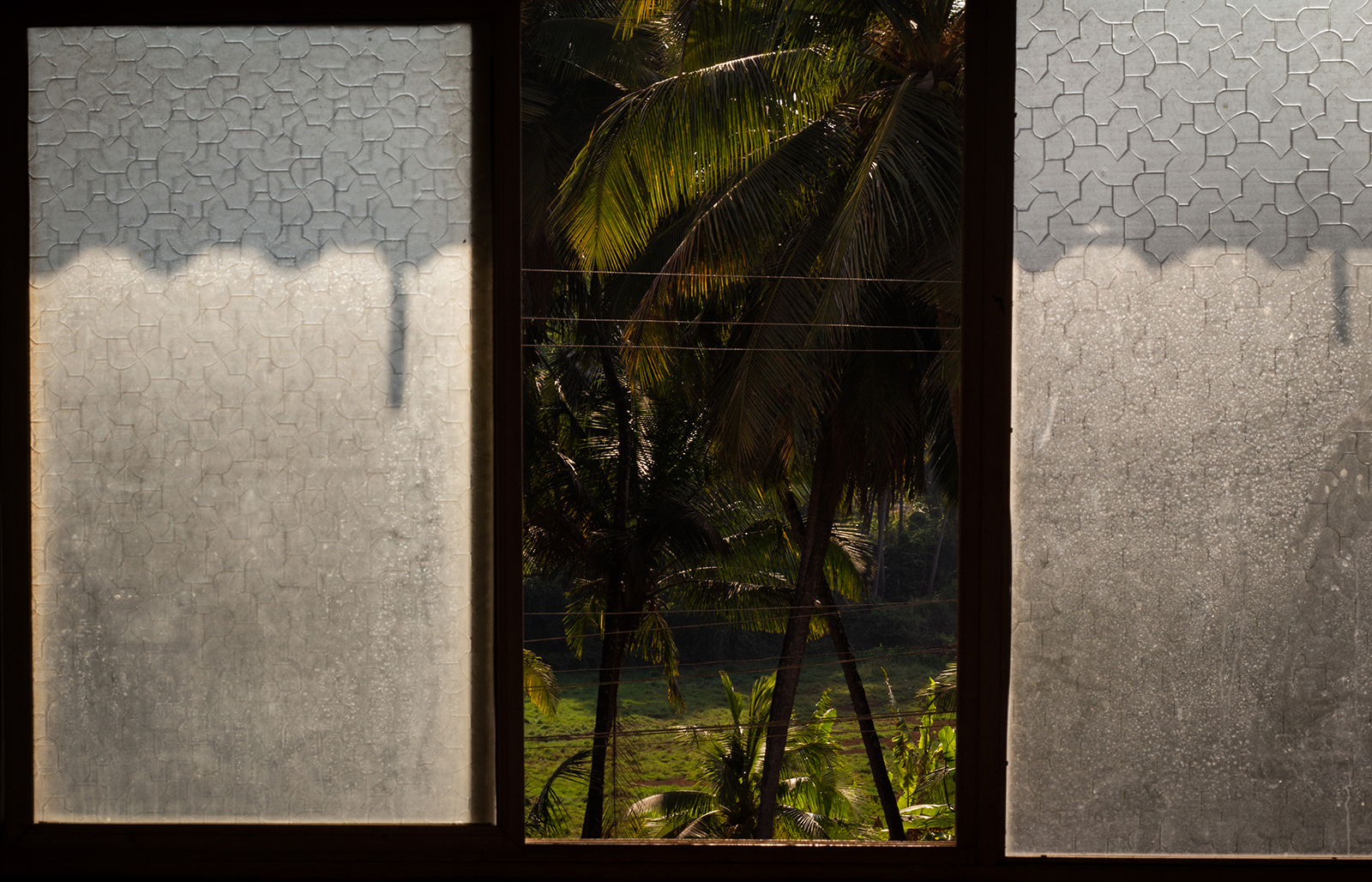
As part of the COSMOS Live program at Le Guess Who? 2023, Rana Ghose, Hardi Kurda and Nikhil Chopra present the collaborative performance String Pulses, which was initiated at the COSMOS Goa Residency on Sunday, November 12th. Rana will also share his thoughts on Indofuturism during a COSMOS panel about Music Futurisms on Friday.
Are you interested in collaborating with COSMOS to share your local cultural scene? Please let us know via cosmos@leguesswho.com.
